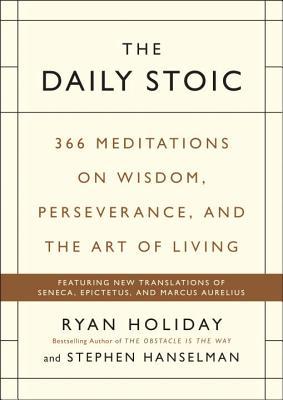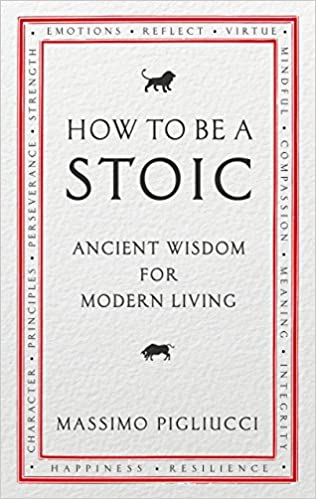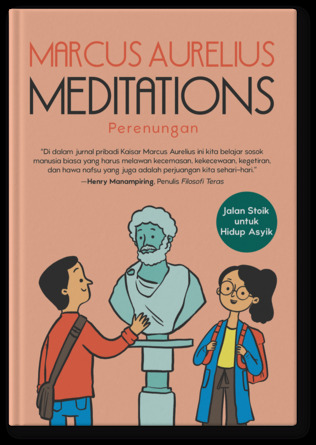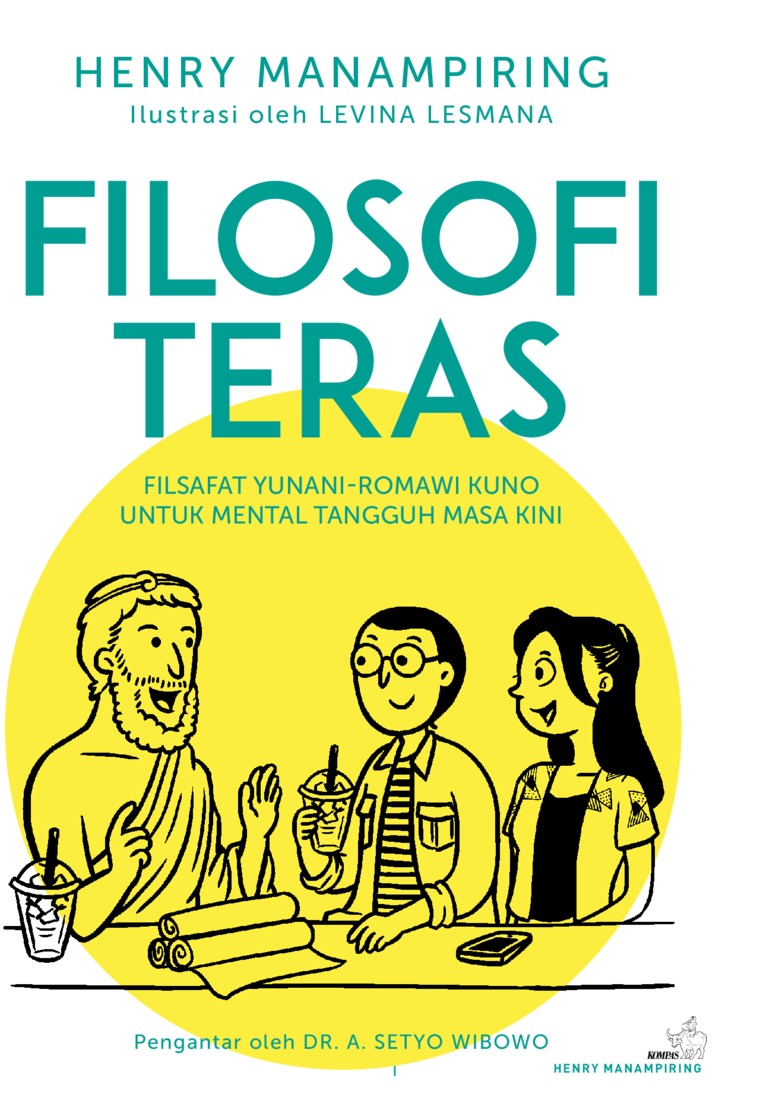Have you ever felt so gloomy, stressed, restless, and a host of other negative emotions? Or maybe you're feeling it right now? If so, this is a good time to get acquainted with stoicism.
Stoicism is a popular mindset for hundreds of years and is the most widely accepted school of philosophy. The reason is, that many people find this philosophy of life very useful in our daily lives because it teaches us to stay calm when faced with unexpected difficult situations. Help us think logically, clear our minds, and make the right decisions.
Sobat BFI, let's get to know stoicism through the explanation below.
What is Stoicism
Stoicism is a philosophical school that helps us control negative emotions and be grateful for everything we have now (be present).
The scope of this flow includes acceptance of the circumstances that we cannot change, changing what we can change, and the wisdom to know the difference between the two. In essence, we as humans are trained to be able to respond to everything rationally.
This is in line with the main goal of this flow, namely self-mastering, someone who can control himself well, calmly, mentally, and emotionally balanced.
In this school of philosophy, life is defined in two parts. The first part is the internal dimension and the second part is the external dimension or known as the control dichotomy.
The internal dimension is everything that is in your complete control. While the external dimension is defined as something that is beyond our control. For example, other people's responses, other people's responses, and what other people think.
Those who adhere to the stoic mindset are called Stoic.
History of Stoicism
Stoicism is a school of philosophy that originated in ancient Greece around 301 BC. This flow was first initiated by a philosopher from Citium named Zeno which was later developed by other famous philosophers such as Seneca, Epictetus, and Marcus Aurelius. Until this century the idea of stoicism is still developing and remains relevant to modern humans today.
In fact, nowadays, stoicism is widely used as psychotherapy for depression, and cognitive behavioral therapy (CBT).
Stoicism's Principles of Life
As with other schools of philosophy, stoicism also has principles that are held and become the foundation for those who want to apply this frame of mind.
The principles of stoicism include:
1. We can only control what is within our control – our own thoughts and actions. Moreover, it is an external matter beyond our control. Therefore, what we can control is our assessment of these externals; events, situations, thoughts, and opinions of others towards us.
The more we try to control what is beyond our control, the more frustrated, disappointed, or even heartbroken we will be. So, focus on what we can control, which is ourselves.
2. Expect the best but also prepare for the worst-case scenario.
3. Train yourself to create a healthy emotional distance from the things around you. Emotional distance does not make us cold or indifferent humans, but on the contrary, what we have can be lost at any time.
4. Understand that in this life nothing is permanent (what we have can be damaged or lost. No exception for loved ones, power, and reputation. There is no certainty.
5. Appreciate what is around us by not wasting it.

Image Source: Pexels/Werner Pfenning
How to Practice Stoicism in Daily Life
Stoicism is a philosophy of life that helps us deal with problems that need to be solved. This philosophy is practical and we can practice in everyday life.
Reporting from Greatmind's video upload entitled On Marissa's Mind: Stoicism, Anti-Anxiety Philosophy, there are at least 7 ways we can practice stoicism. Are as follows.
1. Premeditatio Malorum
Derived from the Greek language which means to train misfortune. This first principle invites us to practice what we fear and is simulated in thought and action, putting us in an uncomfortable position.
This is done to train the toughness that is within us. The Stoics believed that if we did this and misfortune befell us, we would be fine. One way you can do that is by living life very simply, imagining in detail the complex situations that could happen and what we should do about it.
As the philosopher Seneca put it, "unexpected misfortunes are often the most painful" and therefore wise people must have thought of adversity beforehand to be prepared for it if it happened.
2. Control Dichotomy
When in a situation, distinguish what we can change and what we can't, what we can influence and what we can't. Use the time wisely to change and control what we can change.
The more we try to control things beyond our control, the easier it will be for us to feel depressed.
3. Train Perception
The perception we have has a lot to do with how we feel. Therefore, control your perception and not expect too much of something that is uncertain or we can adjust as we like.
As the philosopher, Marcus Aurelius said, "choose not to be hurt and we will not be hurt".
4. See Things with a Broad Perspective
When observing something, try to take a step back, keeping some distance so you can see things more broadly. As Pierre Hadot puts it "looking from above changes our judgment of things".
For example, our view of luxury, power, and a number of worries in life.
5. Nothing Lasts In Life
In this world nothing is permanent. Status, goods, reputation, and people we care about. All of that can go away and disappear at any moment.
The most important thing is now, to be a good person and appreciate what we have right now while we are still alive.
6. Momento Mori (Remember Death)
According to the Stoics, thinking about death can give birth to humility, awakening the spirit to live. We can leave this life at any time, let this determine what we do, say, and think.
Thinking of death becomes depressive if we think about it inappropriately.
7. Amor Fati (Love Your Destiny)
Stoicism teaches us to accept what we have, including the circumstances that befall us. As said by the philosopher Epictetus, who during his life was tempered by many sad things.
“Don't expect things to happen the way we want them to. Hopefully what happens, happens as it should be.”
Recommended Books About Stoicism
If you are interested in learning more about Stoicism, you can use the following books as a reference.
1. The Daily Stoic by Ryan Holiday

2. Letters From A Stoic by Seneca

3. How to be A Stoic: Ancient Wisdom for Modern Living by Massimo Pigliucci

4. Meditations (Perenungan): Jalan Stoik Untuk Hidup Asyik by Marcus Aurelius

5. Filosofi Teras by Henry Manampiring

Sobat BFI, that's the discussion of Stoicism. Implementing stoicism in our lives is not easy. It takes willpower and patience until finally, this mindset becomes part of our daily life. However, through this stoicism, we will learn a lot that situations and obstacles can be used as fuel or a reference for a better self. How, are you interested in trying to implement stoicism?
Worried about financial problems and needing a quick loan? Choose BFI Finance! We offer a variety of conveniences for your financial solutions.
Not only that, welcoming Independence Day in August 2022, BFI Finance has a #PastiMerdeka promo where debtors have the opportunity to get cashback of up to IDR 77 Million! The full terms and conditions can be accessed via the following link.
Information regarding loan applications through BFI Finance can be accessed at the link below.
Submission Information BPKB Motor Guarantee Loan
Submission Information Car BPKB Guarantee Loan
Submission Information Home Certificate Guarantee Loan
Check out other interesting articles on the BFI Blog. Updates every Monday-Friday.
